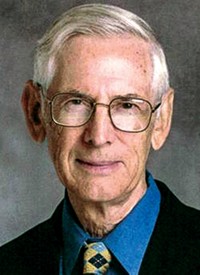Advertisement
Grab your lab coat. Let's get started
Welcome!
Welcome!
Create an account below to get 6 C&EN articles per month, receive newsletters and more - all free.
It seems this is your first time logging in online. Please enter the following information to continue.
As an ACS member you automatically get access to this site. All we need is few more details to create your reading experience.
Not you? Sign in with a different account.
Not you? Sign in with a different account.
ERROR 1
ERROR 1
ERROR 2
ERROR 2
ERROR 2
ERROR 2
ERROR 2
Password and Confirm password must match.
If you have an ACS member number, please enter it here so we can link this account to your membership. (optional)
ERROR 2
ACS values your privacy. By submitting your information, you are gaining access to C&EN and subscribing to our weekly newsletter. We use the information you provide to make your reading experience better, and we will never sell your data to third party members.
Pharmaceuticals
Jerome P. Horwitz
by Susan J. Ainsworth
November 26, 2012
| A version of this story appeared in
Volume 90, Issue 48
Jerome P. Horwitz, 93, a pioneer in AIDS drug research at the Barbara Ann Karmanos Cancer Institute and an emeritus professor at Wayne State University (WSU) School of Medicine, died on Sept. 6.
Born in Detroit, Horwitz earned a bachelor’s degree in 1942 and a master’s degree in 1944, both in chemistry from the University of Detroit. He received a Ph.D. in chemistry in 1948 from the University of Michigan before completing postdoctoral research there and at Northwestern University.
Horwitz joined WSU and the Detroit Institute for Cancer Research in 1956. The institute later became the Michigan Cancer Foundation and is now the Karmanos Cancer Institute.
In 1964, Horwitz synthesized azidothymidine (AZT), which was designed as an anticancer drug. Although AZT was not effective for that application, it became the first drug approved by the Food & Drug Administration for the treatment of AIDS almost two decades later. Horwitz’ research led to the development of dideoxycytidine in 1967; 25 years later, that drug became the second FDA-approved drug for treating AIDS patients. He retired in 2005.
Horwitz wrote more than 100 articles published in peer-reviewed journals as well as several book chapters. He received numerous awards for his work. Horwitz was an emeritus member of ACS, joining in 1949.
He is survived by his wife of 61 years, Sharon; two daughters, Carol Kastan and Suzy Gross; and five grandchildren.
Obituary notices of no more than 300 words may be sent to Susan J. Ainsworth at s_ainsworth@acs.org and should include an educational and professional history.




Join the conversation
Contact the reporter
Submit a Letter to the Editor for publication
Engage with us on Twitter